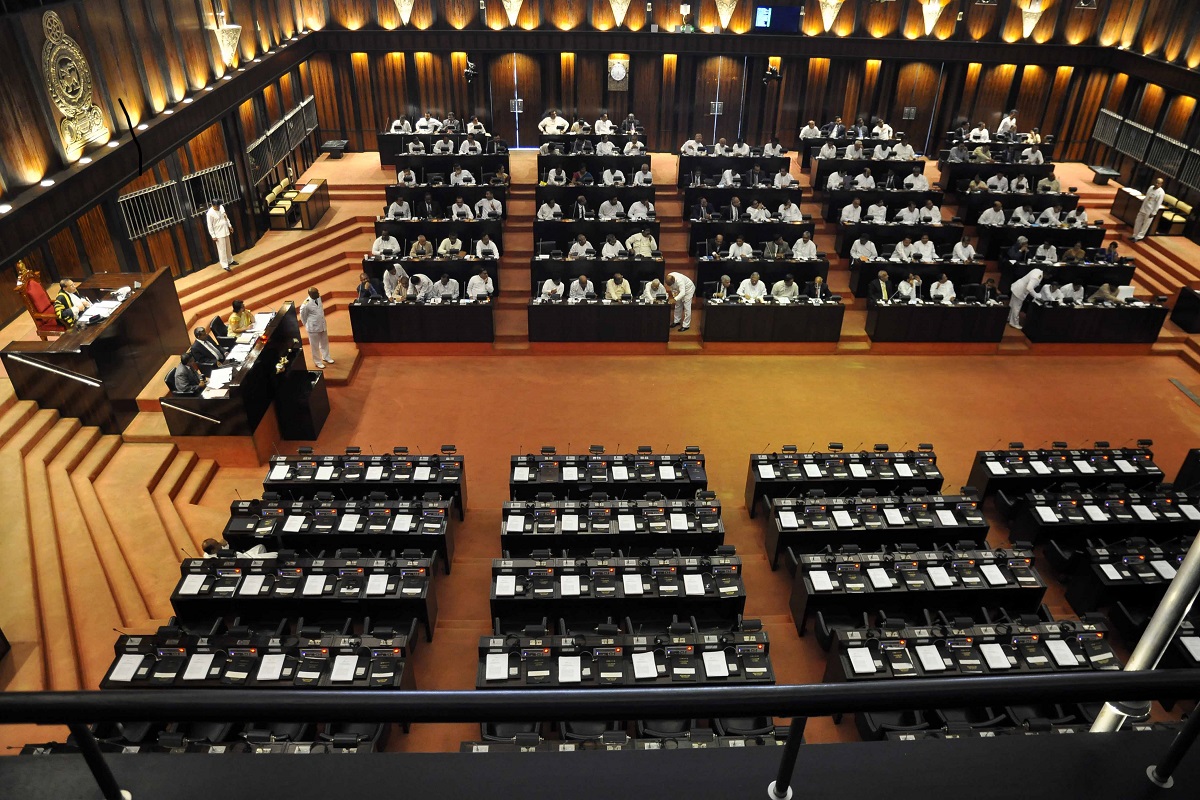The post-independence legislature of Sri Lanka consisted of two houses – the House of Representatives (parliament) and the Senate. This bicameral system, established in 1947, which replaced the State Council of Ceylon, provided some checks and balances in the system of governance.
Under this system, the House of Representatives had 101 members (95 elected by the people and 6 appointed by the Governor General) and the Senate had 30 members (15 elected by the House of Representatives and 15 appointed by the Governor General).
Advertisement
The numbers increased to 157 after the 1960s. The Senate was abolished on 2 October 1971 resulting in the establishment of the unicameral National State Assembly. It was a political decision and not a decision made for the betterment of the country or for a better governance structure.
The National State Assembly, during the period from 1972 to 1978, had 168 members and from 1978 onwards the membership has been increased to 225. The increase in quantity of course, was at the expense of quality, which can be seen when a comparison is made of the level of education, integrity, honesty, selfishness, corruption, etc., of the members of parliament in the pre- and post- 1970s.
Even a person convicted of murder and sentenced to death by the highest court in the country had been sworn in as a law maker in the parliament. It is an irony that law breakers can also be lawmakers! The issue here is whether a small country like Sri Lanka needs a topheavy legislature, with such a large number of MPs.
India which has a bicameral legislature has 543 members in Lok Sabha and 245 members in Rajya Sabha for a population of over 1.3 billion; China which has a unicameral system has 2,980 members in the National Peoples’ Congress for a population of over 1.4 billion; Japan, which has a bicameral system, has 465 members in the House of Representatives (Lower House) and 245 members in the House of Councillors (Upper House) for a population of over 126 million.
Similar comparisons can be made with countries such as Malaysia, Indonesia, Vietnam, etc. Taiwan, which has almost the same geographical size and population as Sri Lanka, which had 225 members until 2005, now has only 133 legislators equivalent to one legislator for over 179,000 citizens.
It is not only the ratio of the population to the number of legislators that is important. Legislators in Sri Lanka are supported by the wealth created by ordinary citizens. One MP is supported by about 95,000 citizens. The actual number of wealth-creating citizens of the country that supports them would be much lower.
In comparison, one parliamentarian in India, China, and Japan respectively represent over 1.7 million, 482,000, and 178,000 citizens. One can only guess the actual cost of maintaining a parliamentarian in Sri Lanka, but there is no doubt that it is extremely high, compared to the income levels in the country.
MPs hold the best jobs in the country and enjoy a luxurious life. Not only are they supported during their terms of office but also for life if they secure two terms. This is quite a substantial burden on the citizens, and the only way to reduce the per capita burden of supporting legislators is to reduce their numbers.
There is also the saying that ‘too many cooks spoil the soup’. A reasonable number would be about 100 with electoral boundaries based on districts and/or provinces, with the details to be determined by the Commissioner of Elections. The prime objective should be to cut down the numbers.
Another related issue is the absence of checks and balances in the governance structure. Under the bicameral system, which Sri Lanka had prior to 1971, a bill had to be passed by both the House of Representatives and the Senate before it could become law.
Under the current unicameral system, it is possible to enact any law if the political party in power so wishes, regardless of whether it is for the benefit of the citizens or not. There is no mechanism for checks and balances. Many countries in the world have bicameral systems to provide checks and balances to the governance structure.
It would therefore be prudent to re-introduce the Senate, or an equivalent system, consisting of members selected from diverging sections of the society, who have proven credibility and acceptability in the society, with integrity, honesty, intellectual capacity to judge what is right and what is wrong on any issue. They should be selected rather than be elected by popular choice.
These two issues should be addressed with high priority, not only because of the above reasons but also, rather unfortunately, the status of the parliament has been severely degraded. Both these changes for a better, more efficient, and citizen-oriented system of governance require amendments to the present Constitution with a referendum.
Either way, it needs to be done with high priority, before the next general election, as any postponement will result in carrying the burden of supporting the 225 incumbents in Diyawanna Palace for at least another five years.











